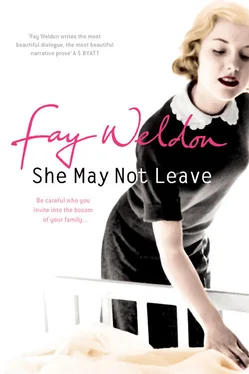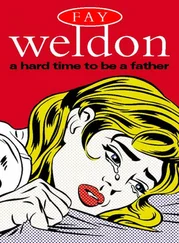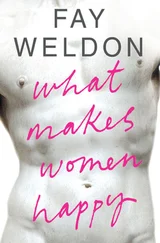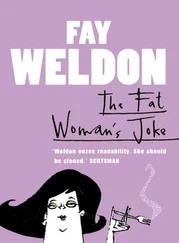Morality, as Hattie recently discovered, is a question of what one can afford. She can afford less than Martyn. Even so, putting the comforter in the baby’s mouth, plugging its distress, Hattie feels guilt. Guilt is to the soul as pain is to the body, a warning that harm is being done. Gender comparisons are odious, as Hattie would be the first to point out, but it is perhaps easier for men to override the emotion than it is for women.
Perhaps I shouldn’t have given Hattie permission to go back to work. Along with the child-care comes guilt, in the form of another pair of hands to soothe Kitty’s brow, another voice to lull her to sleep. Bad enough for Hattie to have bred a baby – and guilt is to motherhood as grapes are to wine – now she must worry about how Agnieszka will react to the baby and the baby to Agnieszka and both to Martyn and back again.
Hattie will have to develop the art of diplomacy fast. Wouldn’t it just be easier to put up with the boredom of motherhood and wait for Kitty to grow up? I feel like phoning Hattie and saying ‘Don’t, don’t!’ but I desist. The girl is not cut out for domesticity. But will Agnieszka influence Kitty’s character, mar her development in some way, teach her how to spit out food and use swear words? I am Kitty’s great-grandmother. I worry. The guilt outruns the generations.
Back in the sixties when we were in our early thirties, living round the corner from each other in Caldicott Square, Serena and I passed au pairs around like hot cakes. Nearly all of them were good girls, just a few were very flawed. But they all made their mark. I am sure some traces of various learned characteristics remain in my children, and in Serena’s too, to this day.
Roseanna, Viera, Krysta, Maria, Svea, Raya, Saturday Sarah – all will have had some input into what they became. Ours may have been the predominant influence, but I’m sure my Jamie learned from Viera how to get his way by sulking and from Sarah how to love in vain. It was from Maria that Lallie the flautist learned to despise us all, but from Roseanne how to value and respect fabrics. Lallie may be falling into bed with a lover but she won’t fling her clothes on the floor. She will place them neatly on the back of a chair, or indeed on a clothes rail. She is prepared to spend hours washing by hand, while I just bung things in the washing machine and hope for the best.
In the days of the many au pairs, I was working in the Primrosetti Gallery for a pittance, Serena was beginning to earn well as an advertising person, and George her new husband had just started his antiques shop. Serena and George lived in a big house in Caldicott Square. The girls lived in the basement, for I had no spare room for them, and though the basement was in its raw early-Victorian state, all damp walls and loose plaster, they did not seem to mind.
I have never been jealous of Serena, she is too amiable and generous for that, and takes her own position in the world lightly, thus obviating envy. She is also, frankly, fat and maintains that this is what has enabled her to survive as well as she has in a competitive world. ‘Oh, Serena!’ people say, ‘Sure she seems to have everything: money of her own making, a nice home, an attentive husband, her name in the papers, creativity, reputation, children – but isn’t she fat! ’ And they can’t be bothered even to throw the barbs.
Back then in the sixties, working in advertising as she was, weighed daily by an expensive doctor in Harley Street and injected with some terrible substance made of pregnant mare’s urine, or some such, plus a daily dose of a crude amphetamine, Serena was thin and glamorous enough. Then indeed, yes, I was envious. Why is it so easy for her, I’d wonder, so hard for me? But then I’d think, well, my twenties were wildly good for me, in a desperate kind of way; hers, until she took up with George, were boring and anxious.
When Serena met George around her twenty-ninth birthday, it was as if some curse had lifted and all the jagged pieces of her life so amazingly and unexpectedly fell into place.
Before that she was a hopeless misfit, suffering from what they now call low self-esteem and an over-placatory nature.
The curse moved over from her to me – perhaps this is the fate of sisters – and it was my turn to endure a decade of blighted life as a single mother, trying to bring up two children – one a sports fanatic, the other, stunningly talented but basically unfriendly. Until then, I was the one who was enviable. I was thin and she was fat.
I daresay if you add up the anxious, tearful, tormented days and nights we have had throughout life, the pair of us, they come to about the same. I clocked up a good few in my seventy-first year, when Sebastian was held incommunicado in a Dutch police cell, and later in prison, but I don’t think as many as Serena did, flailing and wailing and staring into space, when George betrayed her, turned against her, locked her out of her home, around the time of her sixtieth birthday. She married again soon enough.
Martyn On The Way Home From Work
New Century House, where Martyn works as a statistical journalist for Devolution , is newly built and well funded: it stands all glass, steel and shininess, in a block of small rather mean streets between Westminster and Petty France. It is pleasantly decorated and has effective climate control. There was a Legionnaires’ Disease scare when the building first opened – stagnant water had been circulating in the ‘veins’ of the building, its opening by the Prime Minister having been delayed for more than a year – but the source of the epidemic was quickly detected and put right and only a janitor died. A Feng Shui expert was called in to help with the foyer. As a result the entrance to Starbucks is at an angle calculated to welcome customers and revitalise takings. It seems to be working. The noise from cheerful non-smoking coffee drinkers floats up the escalators until well after ten each morning: the elevators smell of hot chocolate croissants.
Each of the seven floors has a dedicated rest room for stressed staff, with a good supply of fresh towels for showers, and for a small fee pillows are available for those who need to sleep. Research shows that nothing improves productivity like the short power-nap. Since Kitty arrived Martyn has made good use of these rooms. The baby sleeps well by day but not by night, no matter how often Hattie takes her to the breast, and it is impossible for Martyn to sleep through the wrigglings and moanings of both mother and child.
As well as serving as the offices of the sister magazines Devolution and Evolution , the building houses the headquarters of three think-tanks or public policy research institutes – the Centre for Post-Communist Economic Development, the Policy Coordination of Welfare Reform Initiative, the Institute for Social Commentary – and two quangos dealing with societal management and measurement.
There has been some talk of Martyn being seconded part-time to the Welfare Reform Initiative under the new Moving and Growing Human Resources Plan, which deals with unemployment issues, but Martyn is manoeuvering so this won’t happen. The pay is more, but Martyn sees his future in political journalism and indeed in politics itself. He is more likely to be selected as a candidate out of a journalistic background than from one more concerned with statistical research. He needs visibility.
Martyn is taking a nap in the fourth-floor sanctuary. It is a pale green room with pink features; rather hard on the eye but the colours are recognised to foster sleep. At home Hattie and he have strong, dark, powerful colours on the walls and they have painted the furniture red: Kitty’s cot is yellow to maximise her synaptic responses. Hattie scorns the New Age – crystals and horoscopes and so on – but has a belief in the power of colours to influence mood which Martyn finds endearing. His own upbringing was so practical and no-nonsense he sometimes finds himself hungry for Southern whimsicality.
Читать дальше












